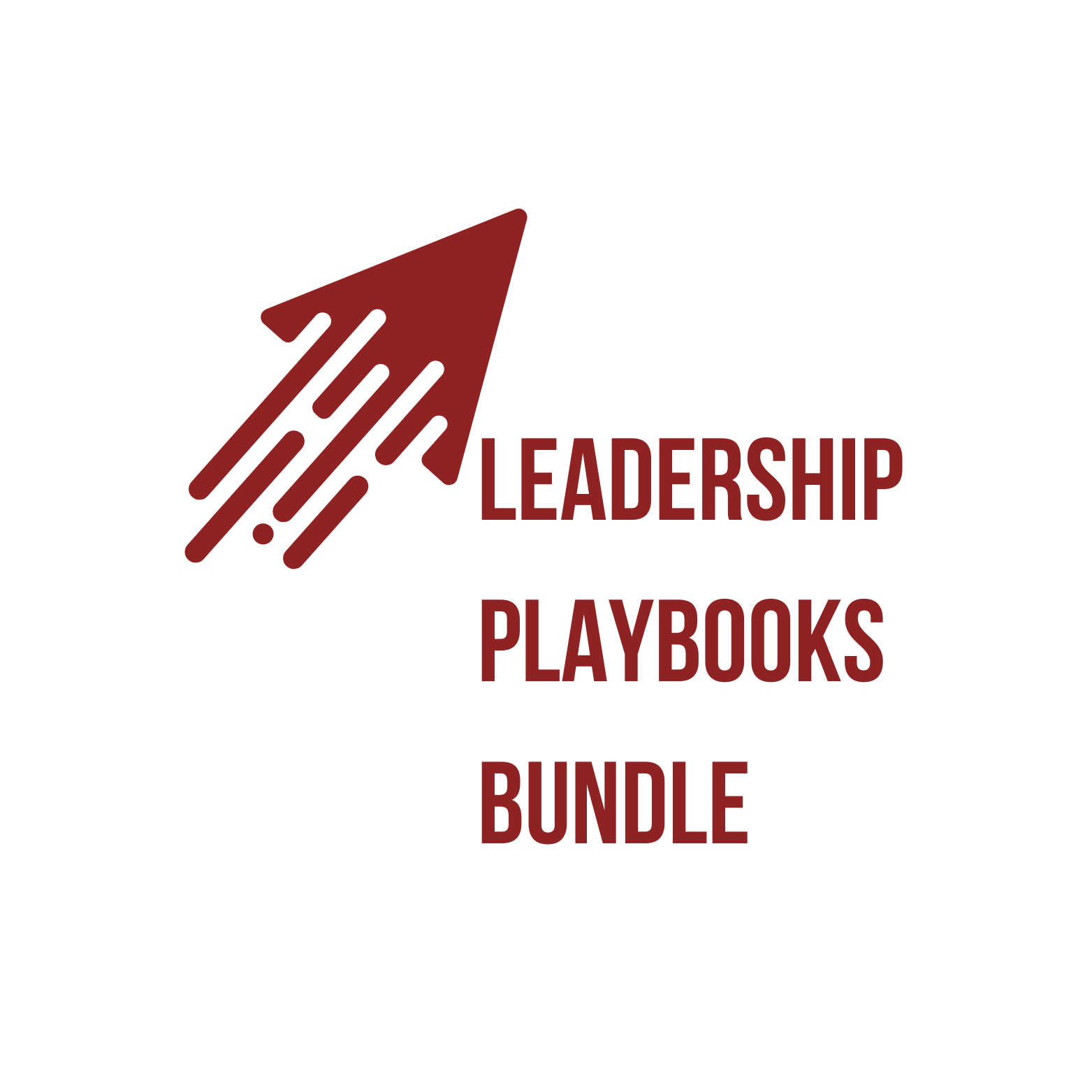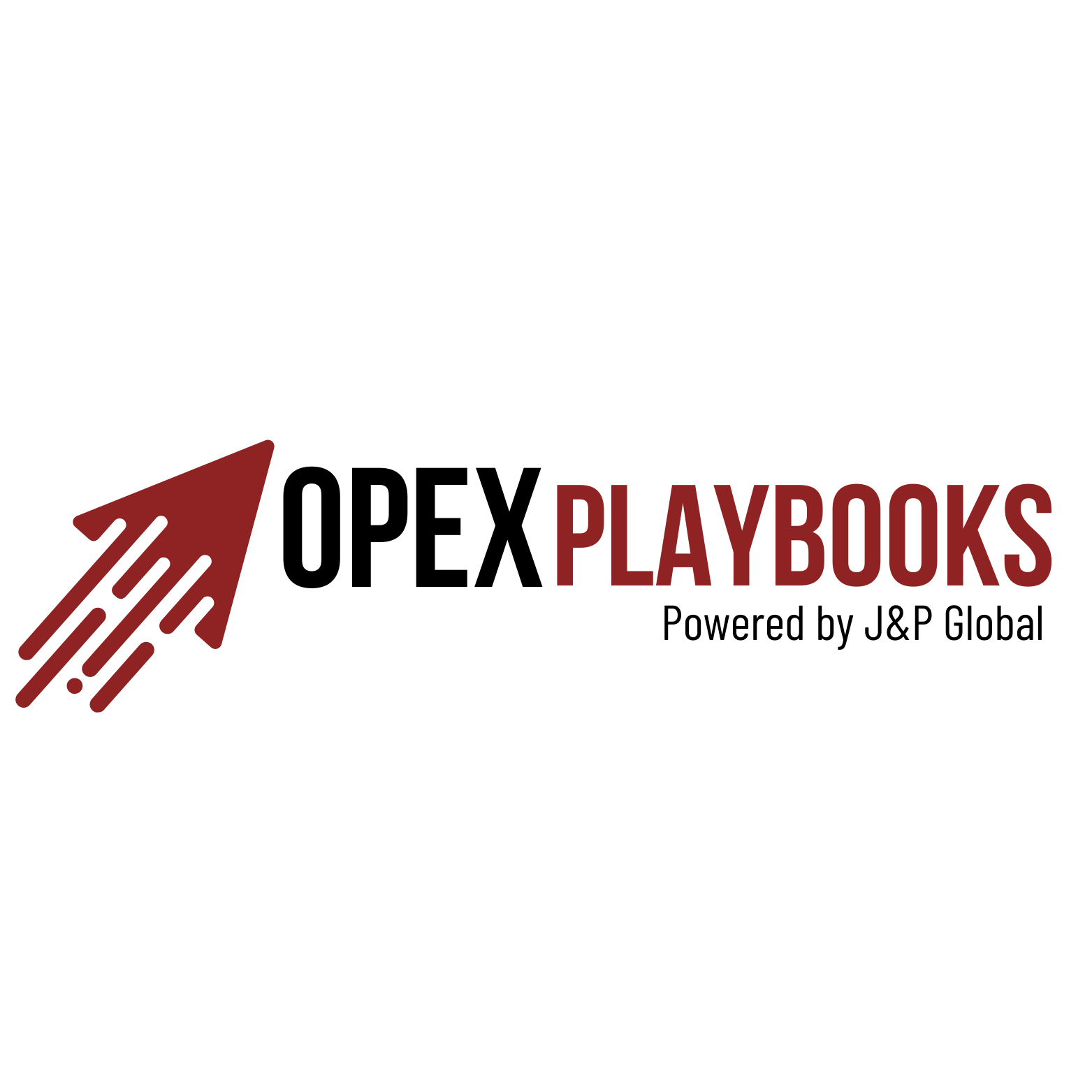LEADERSHIP
Leadership is the catalyst that transforms vision into reality. Strategies, processes, and tools can only succeed when guided by leaders who provide clarity, direction, and inspiration. The Leadership Excellence Playbooks Pack equips executives, managers, and aspiring leaders with practical, ready-to-use systems to strengthen their leadership impact in today’s complex and fast-changing environment.
This pack covers every dimension of leadership: from Strategic Planning, Decision-Making, and Change Leadership to Time Management, Influence & Persuasion, and Crisis Leadership. It also provides modern essentials such as Leadership Branding, Remote & Hybrid Team Management, and Visual KPI Dashboards, ensuring leaders stay effective across both traditional and digital workplaces.
Whether you are building high-performance habits, mastering communication and negotiation, or driving innovation and continuous improvement, these Playbooks guide you step by step to lead with confidence, integrity, and measurable results.
With this pack, leadership becomes actionable and sustainable—helping you not only inspire teams but also deliver excellence, resilience, and growth across the entire organization.
STRUCTURE OF A PLAYBOOK
Part 1 – Problem Statement
Part 2 – Framework & Core Concepts
Part 3 – Step-by-Step Guide
Part 4 – Templates & Checklists
Part 5 – Exercises
Part 6 – Roadmap
Part 7 – Action Steps Summary
Part 8 – Conclusion + Call to Action
We have:
1. Decision-Making Framework Playbook
2. Leadership Storytelling Playbook
3. Time Management Playbook
4. Change Leadership Playbook
5. Influence & Persuasion Playbook
6. Crisis Leadership Playbook
7. Global Leadership Competency Playbook
8. Leadership Branding Playbook
9. Leadership KPI Dashboard Playbook
10. Coaching & Mentoring Playbook
11. Ethical Leadership Playbook
12. High-Performance Leadership Habits Playbook
13. Visual Leadership Dashboard Playbook
14. Leading Remote & Hybrid Teams Playbook
15. Servant Leadership Playbook
16. Leadership Communication Playbook
17. Negotiation & Conflict Resolution Playbook
18. Innovation Leadership Playbook
19. Continuous Improvement Leadership Playbook
Contact Us For More Information!
Thank you.
LEADERSHIP PLAYBOOKS BUNDLE

409 USD
Leadership has become the defining advantage in today’s complex world.
Strategies, technologies, and markets can all change overnight—but without effective leadership, organizations struggle to adapt, inspire, and deliver results. Poor leadership wastes talent, slows decisions, and creates cultures of disengagement that no system or tool can fix.
The Leadership Excellence Pack was built to change that. With practical playbooks, it equips leaders at every level to build clarity, make bold decisions, and create lasting impact.
Designed for SMEs, service organizations, startups, and global teams, this pack goes beyond theory. Each playbook combines proven leadership frameworks with Operational Excellence (OPEX) tools, templates, and exercises that leaders can put into practice immediately.
With this bundle, you’ll be able to craft powerful strategies, manage time and change effectively, lead through crises, influence with integrity, coach and mentor talent, and measure leadership performance through dashboards.
The Leadership Excellence Pack is more than a set of guides—it’s a complete leadership operating system that helps organizations build resilient, inspiring leaders who can drive performance, foster trust, and create a culture of continuous improvement.

1. DECISION-MAKING FRAMEWORK PLAYBOOK
29 USD
Unlike ad hoc decision-making or one-off strategy sessions, this playbook introduces a structured, repeatable, and OPEX-aligned framework that enables leaders to consistently make smarter, faster, and more transparent choices. Specifically, it emphasizes:
. Strategic Alignment — ensuring decisions support OKRs, Balanced Scorecard metrics, and long-term goals.
. Objectivity — using structured tools (Decision Matrix, Risk Heatmaps, FMEA) to minimize bias.
. OPEX Discipline — embedding Lean, Six Sigma, and PDCA cycles to measure and refine decisions.
. Transparency — documenting rationale and criteria for better communication and trust.
. Continuous Learning — building feedback loops to improve future decision quality.

2. LEADERSHIP STORYTELLING PLAYBOOK
29 USD
Unlike presentation skills manuals or public speaking guides, this playbook provides a structured framework for leadership storytelling that links narratives directly to organizational strategy and performance outcomes. Specifically, it emphasizes:
. Strategic Alignment — Crafting stories that connect vision, mission, and values to daily work.
. Human-Centered Connection — Using authentic stories to build trust and reduce resistance.
. Behavioral Impact — Shaping not only what people know, but how they feel and act.
. OPEX Discipline — Embedding storytelling into leadership routines as part of change management, continuous improvement, and culture-building.
. Scalability — Equipping leaders at all levels to deliver consistent, resonant messages across functions and geographies.

3. TIME MANAGEMENT PLAYBOOK
29 USD
Unlike generic time management advice, this playbook is designed as an OPEX-aligned system for mastering time at both the individual and organizational levels. Specifically, it focuses on:
. Strategic Alignment — ensuring daily and weekly time allocation supports organizational priorities (Hoshin Kanri, OKRs, Balanced Scorecard).
. Lean Thinking — eliminating time waste (e.g., waiting, overprocessing, unnecessary meetings).
. Structured Routines — using Standard Work, PDCA cycles, and time-blocking to create consistent habits.
. Behavioral Focus — addressing the human side of time management: decision fatigue, procrastination, and attention management.
. Measurable Outcomes — tracking time usage with dashboards and aligning it with KPIs for accountability.
This playbook goes beyond “tips and tricks” — it provides a repeatable framework to transform time into a competitive advantage.

4. CHANGE LEADERSHIP PLAYBOOK
29 USD

5. INFLUENCE & PERSUASION PLAYBOOK
29 USD
This playbook goes beyond generic communication tips. It provides a structured, repeatable framework for mastering influence and persuasion as an OPEX discipline. It emphasizes:
. Strategic Alignment — ensuring persuasion efforts are tied directly to organizational goals and KPIs.
. Evidence + Emotion — balancing data-driven logic with emotional resonance to drive action.
. Behavioral Science — applying principles from psychology (e.g., reciprocity, social proof, authority, scarcity, consistency, liking).
. Cross-Cultural Agility — adapting persuasion strategies for diverse global contexts.
. Continuous Practice — embedding persuasion habits through preparation, delivery, feedback, and refinement.
By treating persuasion as a process — not a one-off event — leaders can systematically improve their ability to win hearts and minds, creating sustainable momentum for change and growth.

6. CRISIS LEADERSHIP PLAYBOOK
29 USD
Unlike general leadership manuals, this playbook provides a step-by-step, OPEX-aligned crisis leadership framework. It equips leaders with practical tools to:
. Establish clear decision-making authority during high-stakes events.
. Maintain transparent and consistent communication with employees, customers, and stakeholders.
. Balance speed with accuracy, ensuring decisions are made quickly but remain fact-based.
. Protect employee well-being while sustaining essential operations.
. Embed continuous improvement by transforming crises into learning opportunities.
This playbook bridges leadership, communication, and operational resilience — ensuring leaders don’t just “manage” crises, but lead through them with confidence and clarity.

7. GLOBAL LEADERSHIP COMPETENCY PLAYBOOK
29 USD
This playbook provides leaders with a structured, competency-based framework to navigate global complexity and build inclusive, high-performance teams across geographies. Unlike generic leadership guides, it emphasizes:
. Strategic Alignment: Connecting global leadership competencies directly to corporate growth, innovation, and expansion strategies.
. Cultural Agility: Building adaptability in mindset and practices to thrive in diverse cultural contexts.
. Systems Thinking: Using OPEX tools to manage complexity, align global and local priorities, and reduce friction across functions and borders.
. Resilience & Ethics: Equipping leaders to balance global performance with social responsibility and trust.
. Continuous Improvement: Applying PDCA cycles and maturity models to assess and strengthen global leadership capacity over time.

8. LEADERSHIP BRANDING PLAYBOOK
29 USD
Unlike generic personal branding guides, this playbook provides a structured, OPEX-aligned framework for leaders to:
. Define a clear and authentic leadership identity.
. Align personal brand with organizational strategy and values.
. Communicate consistently across channels and audiences.
. Build credibility through measurable actions, not empty slogans.
. Strengthen trust, loyalty, and influence inside and outside the organization.
This approach ensures that leadership branding is not superficial image-building, but a disciplined practice integrated with performance, culture, and strategic outcomes.

9. LEADERSHIP KPI DASHBOARD PLAYBOOK
29 USD
This playbook provides a structured, OPEX-aligned framework for creating and using Leadership KPI Dashboards — a tool that consolidates strategic, cultural, and behavioral indicators into one clear view. It is designed to move leadership measurement from intuition to evidence, enabling organizations to:
. Align leadership KPIs with strategy: Ensure every leadership activity contributes to business goals, OKRs, and long-term value creation.
. Create transparency: Provide boards, executives, and teams with a shared view of leadership effectiveness.
. Drive accountability: Establish clear benchmarks for evaluating leadership behaviors and decisions.
. Enable continuous improvement: Use data-driven insights to refine leadership practices through PDCA cycles.
. Foster trust: Show stakeholders that leadership performance is measured with the same rigor as operational and financial performance.

10. COACHING & MENTORING PLAYBOOK
29 USD
Unlike ad-hoc guidance or generic leadership courses, this playbook provides a structured, OPEX-aligned framework for building coaching and mentoring into the organization’s DNA. It equips leaders with tools to:
. Institutionalize coaching — shift from sporadic advice to consistent, structured development.
. Create measurable impact — link coaching and mentoring outcomes to KPIs like retention, engagement, and performance.
. Accelerate leadership pipeline — ensure future leaders are prepared through mentorship at every level.
. Enhance culture — build trust, psychological safety, and continuous learning.
. Sustain improvement — embed PDCA cycles into coaching and mentoring practices.

11. ETHICAL LEADERSHIP
PLAYBOOK
29 USD
This playbook exists to help leaders:
. Translate values into actions — moving beyond slogans to practical, day-to-day behaviors.
. Build systems of integrity — embedding ethical principles into governance, performance management, and strategy.
. Prevent risks proactively — addressing reputational, compliance, and cultural risks before they escalate.
. Link ethics to performance — showing how integrity strengthens long-term business results, customer loyalty, and employee engagement.
. Anchor decisions in OPEX discipline — applying structured tools (PDCA, Balanced Scorecard, Risk Heatmaps) to ensure ethical leadership is not abstract but measurable and repeatable.

12. HIGH-PERFORMANCE LEADERSHIP HABITS PLAYBOOK
29 USD
Unlike motivational books or leadership theory, this playbook is practical and OPEX-aligned. It equips leaders with systems and routines that can be standardized, measured, and continuously improved. Specifically, it emphasizes:
. Strategic Alignment — ensuring habits directly support organizational goals and KPIs.
. Consistency & Standard Work — turning leadership best practices into repeatable routines.
. Continuous Improvement — applying PDCA cycles to habits so leaders evolve with context.
. Energy & Focus Management — using proven productivity and well-being frameworks to sustain performance.
. Role-Modeling Impact — embedding habits that create a culture of excellence across teams.

13. VISUAL LEADERSHIP DASHBOARD PLAYBOOK
29 USD
This playbook provides a practical, OPEX-driven framework for designing and deploying visual dashboards tailored for leaders — not analysts. It emphasizes:
. Strategic alignment: Dashboards that clearly link vision, goals, and KPIs.
. Clarity and simplicity: Presenting the right data in the right way for faster action.
. Visual management: Using Lean principles to make progress visible and actionable.
. Standardization: Creating consistent dashboard practices across teams and functions.
. Continuous improvement: Regularly reviewing and evolving dashboards as priorities change.

14. LEADING REMOTE & HYBRID TEAMS PLAYBOOK
29 USD
Unlike generic remote work tips, this playbook provides a structured and OPEX-aligned leadership framework for guiding distributed teams. Specifically, it emphasizes:
. Strategic Alignment – Cascading organizational vision and OKRs into remote and hybrid workflows.
. Standardized Routines – Using playbooks, meeting protocols, and dashboards to ensure consistency.
. Equity & Inclusion – Building systems that give remote employees equal access to opportunities.
. Trust & Autonomy – Moving from activity-based to outcome-based performance management.
. Sustainability – Embedding well-being, resilience, and continuous improvement practices to prevent burnout.
. OPEX Integration – Leveraging Lean, Six Sigma, PDCA, and Kaizen to design efficient, engaging, and adaptive virtual workflows.

15. SERVANT LEADERSHIP PLAYBOOK
29 USD
This playbook provides a structured, OPEX-aligned framework for servant leadership. It goes beyond philosophy to offer practical steps, tools, and systems that leaders can apply in real time. Unlike abstract leadership theories, this playbook emphasizes:
. Strategic Alignment — connecting servant leadership with organizational goals and customer value.
. Empowerment Systems — building routines where leaders coach, remove obstacles, and elevate others.
. Continuous Improvement — applying Lean and Kaizen principles to leadership habits.
. Measurement — linking servant leadership practices with outcomes such as engagement, retention, and innovation.

16. LEADERSHIP COMMUNICATION PLAYBOOK
29 USD
This playbook provides a structured framework for leadership communication, rooted in clarity, consistency, and connection. Unlike general communication tips, it integrates OPEX principles to ensure communication is measurable, standardized, and continuously improved.
Specifically, it emphasizes:
. Strategic Alignment — connecting communication to organizational vision, OKRs, and KPIs.
. Clarity and Simplicity — eliminating jargon and ensuring messages are universally understood.
. Feedback Loops — creating two-way dialogue that improves trust and continuous learning.
. Multi-Channel Effectiveness — selecting the right channel for the right audience at the right time.
. Data-Driven Communication — using dashboards and surveys to track clarity, alignment, and impact.

17. NEGOTIATION & CONFLICT RESOLUTION PLAYBOOK
29 USD
Unlike generic guides, this playbook provides a structured, OPEX-aligned framework for mastering both negotiation and conflict resolution. It equips leaders and teams to:
. Diagnose conflict early and apply the right resolution strategy.
. Navigate negotiations systematically, focusing on long-term relationships and sustainable agreements.
. Apply OPEX tools (PDCA, SIPOC, root cause analysis) to analyze causes of conflict and measure negotiation outcomes.
. Balance assertiveness with empathy, ensuring solutions meet both business objectives and human needs.
. Institutionalize negotiation and conflict resolution practices as part of leadership culture.

18. INNOVATION LEADERSHIP PLAYBOOK
29 USD
Unlike generic creativity guides, this playbook provides a leadership-centered, OPEX-aligned framework for embedding innovation into daily practice. It emphasizes:
. Strategic alignment — ensuring innovation supports long-term business goals.
. Leadership behaviors — shifting from command-and-control to empowerment and experimentation.
. Structured frameworks — using tools such as Design Thinking, Lean Startup, and Innovation Funnels.
. Data-driven scaling — tracking ROI, adoption rates, and market impact of innovations.
. Culture of experimentation — normalizing failure as a stepping stone to breakthrough ideas.
This playbook equips leaders with the mindset, tools, and systems to turn creativity into measurable value.

19. CONTINUOUS IMPROVEMENT LEADERSHIP PLAYBOOK
29 USD
Unlike generic change management guides, this playbook provides a leadership-focused framework for embedding continuous improvement as a habit, culture, and operating discipline. Specifically, it emphasizes:
. Strategic Alignment – Connecting improvement initiatives to vision, mission, and long-term goals.
. Leadership Habits – Developing leaders who model PDCA cycles, kaizen principles, and standard work.
. Cultural Reinforcement – Building trust, psychological safety, and recognition systems that sustain improvement.
. Structured Frameworks – Applying Lean, Six Sigma, and Kaizen in a leadership context rather than technical silos.
. Measurable Outcomes – Using dashboards, maturity models, and leader scorecards to ensure progress.
This playbook translates continuous improvement from a project into a leadership way of life.

Email: [email protected]
Copyright 2025 . J&P Global LLC . All rights reserved. OPEXPlaybooks™ is a brand and system owned and operated as a DBA of J&P Global LLC, headquartered in Texas, USA.